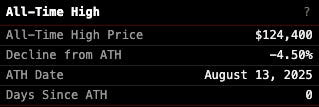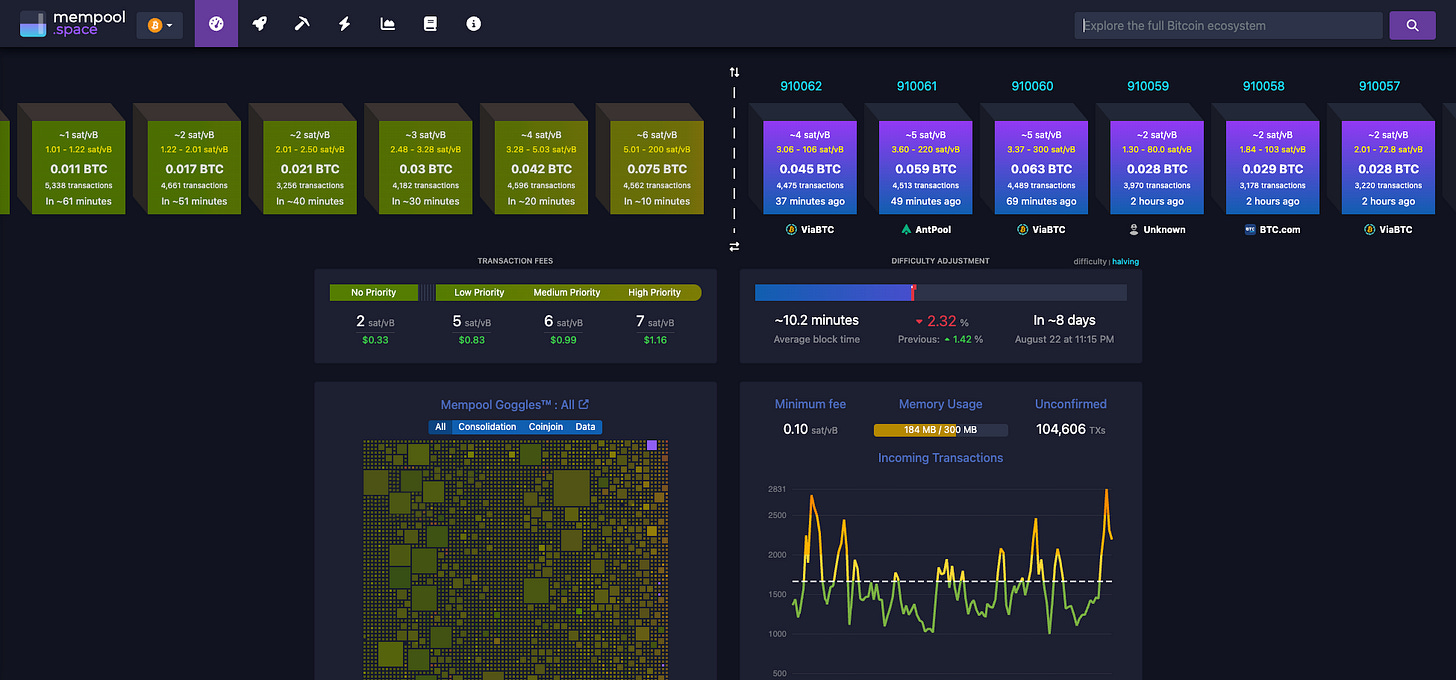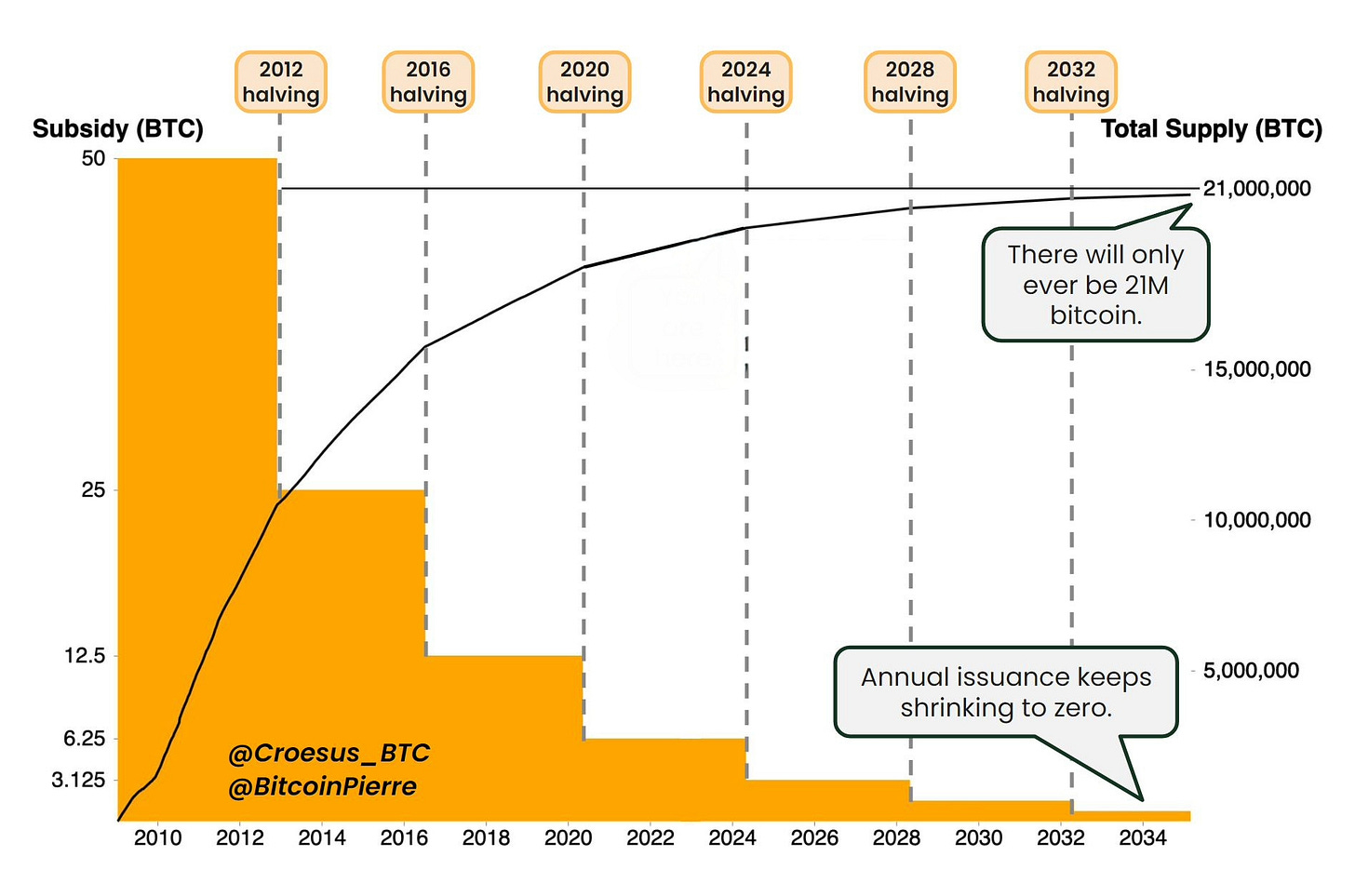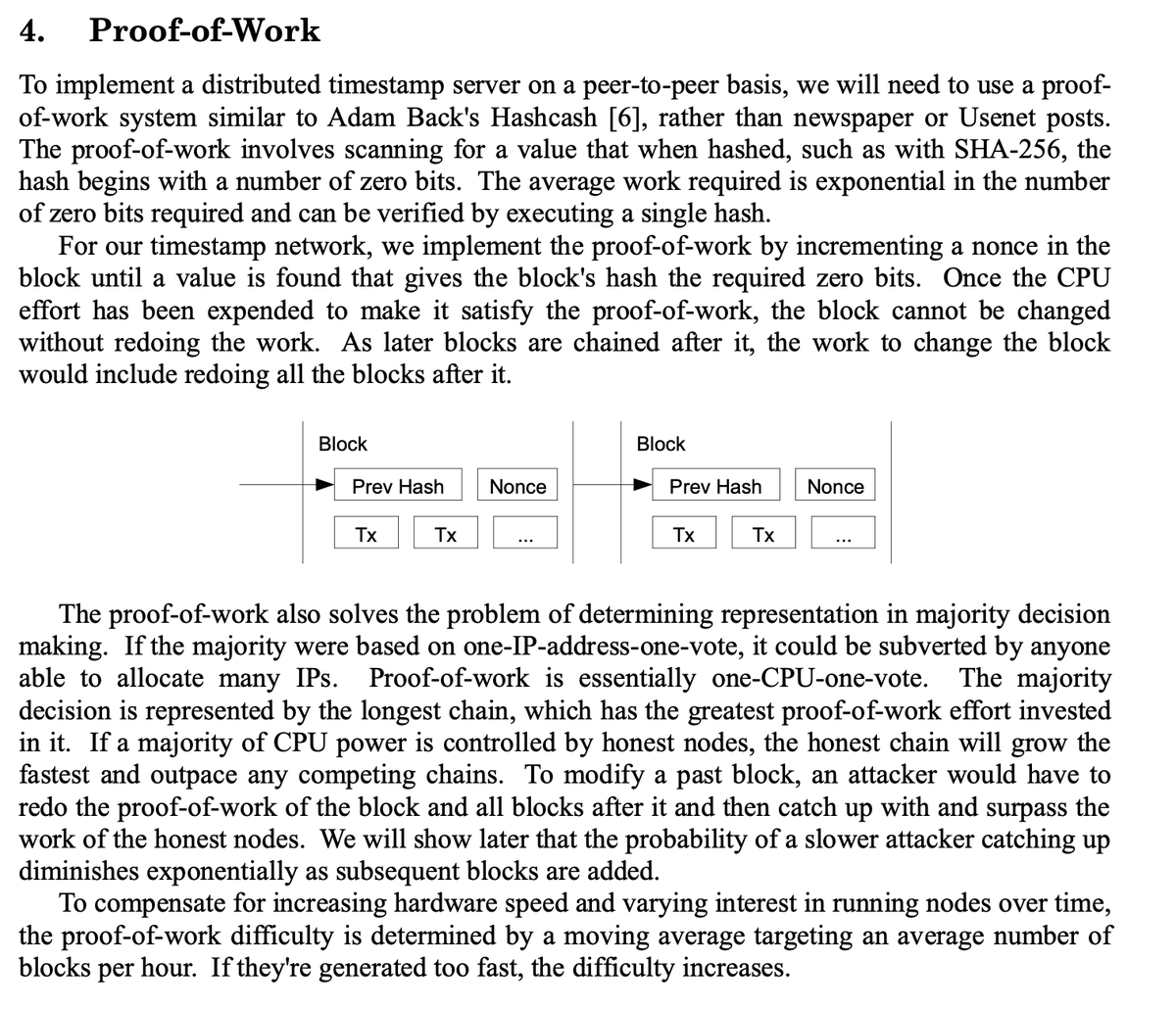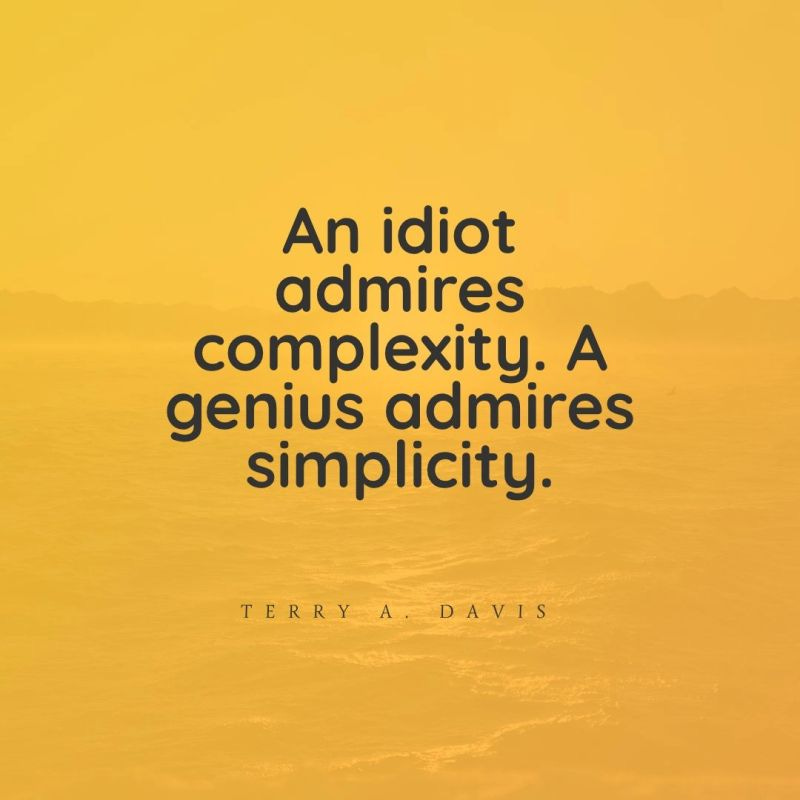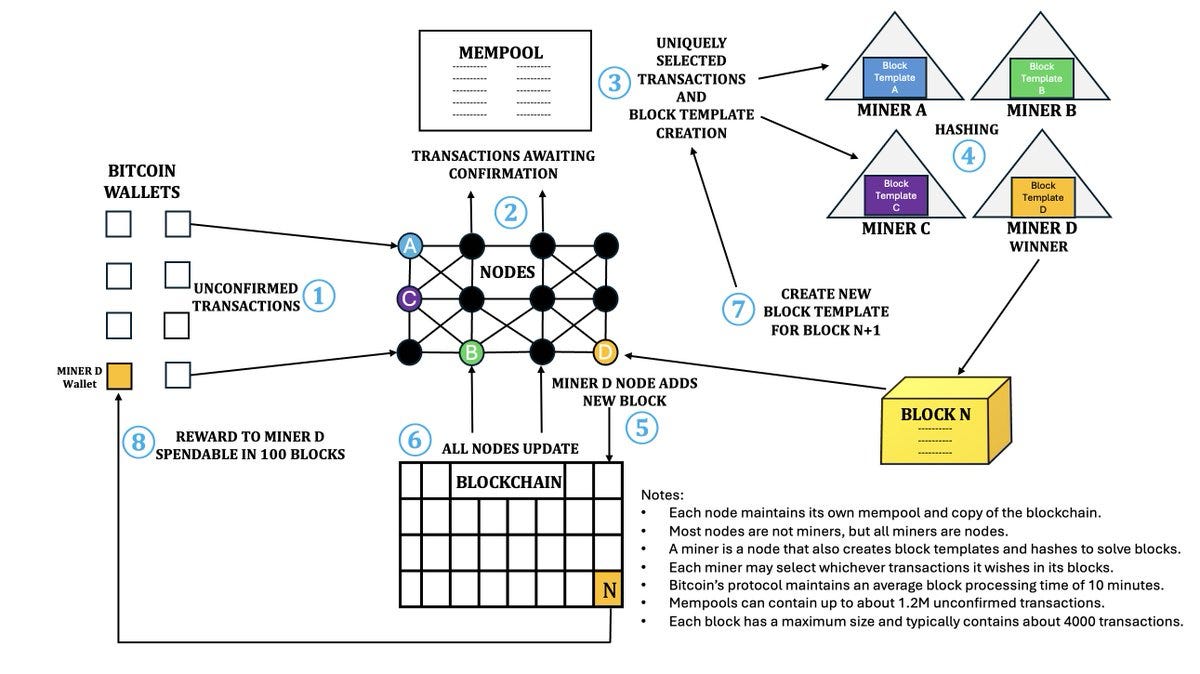What is (and isn't) Bitcoin Mining?
Do you understand what you own?
The market is heating up, clocking in a new ATH yesterday:
Depending on where you’re at in your journey as a Bitcoin investor, the increasing dollars per BTC may bring about varying emotions.
Here is a useful mental framework during these times:
FOMO mindset: Bitcoin = current dollar amount set by the market
Bullish mindset: Bitcoin = sat/dollar parity ($100M/BTC), the market doesn’t know it yet
Bespoke mindset: Bitcoin = global base layer money
This can help in assessing the future value of Bitcoin as a store of value, medium of exchange, and of course, unit of account.
Don’t use the same thinking everyone else is using.
Use the thinking people will be using 10 years from now.
I recently attended a “Financial Freedom Expo.”
The conference had investors from diverse sectors: real estate, lending products, precious metals & resources, insurance and tax solutions, and even investing in TED Talks and nursing homes.
Our Bitcoin mining booth was the only “crypto” company at the expo.
I was asked hundreds of questions.
From boomers and teenagers to financial advisors and gold maxis, you name it.
The most common question:
“So what is Bitcoin mining?”
How would you answer this question?
Go ahead and take some time and reflect on what you would say.
I would give general responses, “Computers solving complex math problems to verify Bitcoin transactions.”
I would also try to give more nuanced responses, “Bitcoin miners search for a number to add blocks to a chain. They earn Bitcoin as a reward for their efforts. This process prevents double-spending and confirms transactions.”
I was mostly explaining it in a dumbed-down version like this:
But something didn’t sit right with me…
The more I thought about it, Bitcoin mining is not “solving complex math problems” at all.
It’s not complex, and by dumbing it down, I am actually taking away from the brilliant simplicity (as applies to many things in life)
In my opinion, less than 1% of 1% of the global population truly understands what Bitcoin mining is (and isn’t)
My mission, and the purpose of this letter, is to increase this number.
What does a Bitcoin miner do?
• A machine/computer is connected to a power source.
• The computer looks for a number in a very large set
• The computer consumes energy to do this.
• The computer gets rewarded with Bitcoin for its efforts
These computers don’t try to “solve complex math problems”
They generate trillions of lottery ticket guesses:
To put the scale into perspective, this is like:
• Searching for one specific grain of sand on the beaches of a thousand Earth-like planets
• Choosing one specific star from all the stars in the observable universe
• Flipping a coin 79 times and getting heads every time
It takes Bitcoin miners 10 minutes to find the number, on average.
This gives you an idea of how many miners are generating these guesses or “hashes"
The winning number is what produces a “block.”
A block is just a batch of Bitcoin transactions.
You can see the data in blocks visualized on mempool.space
Ok, so now we know what Bitcoin miners are technically doing.
But many people will respond to this with,
This sounds stupid. Why is this important? Isn’t this a waste of energy???
The reason for Bitcoin mining
The #1 reason these computers do this is to produce blocks.
And the #1 reason to produce blocks is because they are the vehicle by which Bitcoin transactions are confirmed.
If I send you Bitcoin, the only way that transaction gets confirmed is if it is included in one of the purple blocks on the right (refer to mempool image above)
This allows money to be sent and received on the Bitcoin network. Blocks are the way Bitcoin is transferred.
But why do these computers go through all this work to add these blocks?
They have costs to do this (primarily the power consumption).
Because they have an incentive: the block reward.
This is the #2 reason for Bitcoin mining: the issuance of new Bitcoin.
You can get Bitcoin from someone else, or you can get Bitcoin from a block reward.
The block reward consists of the block subsidy (new BTC) and transaction fees (existing BTC paid by people sending Bitcoin)
Here is a useful chart to see the block subsidy paid to miners shrinks over time:
There are currently 19.9 million coins in circulation. Mining is how this number grows. BUT, it can NEVER grow past 21 million (major reason why people like Bitcoin).
So, we know the reason for mining is 1) to produce blocks and 2) release new Bitcoin
But isn’t there a better way to do this without all the energy consumption?
No, because the energy consumption is what BACKS Bitcoin and keeps the record of who owes what to whom, honest.
Bitcoin mining follows a universal principle:
Proof of Work
What miners are technically doing is not the hard part.
It is understanding how this is starkly different from the traditional fiat financial system, which requires NO WORK to produce money.
Why should people work for money that takes no work to produce?
Even worse, work for money that can be PRINTED.
This is why the gold standard existed for thousands of years before corrupt politicians removed Proof of Work from money in 1971 (Nixon Shock)
Gold took work to produce (dig deep holes to find), so people preferred it as money.
Bitcoin is similar, except better suited for a digital society.
Bitcoin miners are REQUIRED to provide PROOF they did the WORK to confirm the integrity of Bitcoin transactions.
This is what secures Bitcoin.
If I wanted to cheat Bitcoin (double spend, censor, etc) and attack its security as a money, I would need to redo all the work miners completed.
I would need to find the grain of sand among thousands of planets and the specific star in the galaxy every 10 minutes for 15 years.
And then I would need to do this work faster than all of the honest miners enforcing the integrity and security of Bitcoin.
Impossible.
I am better off simply being an honest miner. This is how the creator of Bitcoin designed the system.
Here is an excerpt from The Bitcoin Whitepaper:
"Any attacker will find it more profitable to play by the rules."
Meaning, if you are monetarily motivated, you will be better off contributing to Bitcoin mining than trying to cheat the system.
Brilliant.
TLDR:
“What is Bitcoin mining?”
A Bitcoin miner is a computer that consumes energy to generate trillions of guesses to find a specific number.
This number confirms your Bitcoin transaction through a block (batch of Bitcoin transactions)
They do this to secure Bitcoin as global, honest, fair, peer-to-peer money (that nobody can cheat) –
No government, no politician, no billionaire, no central bank, no Federal Reserve.
Bitcoin is money for everyone, and I do my best not to go over people's heads with technical word salad jargon.
Here is a cool chart I found h/t Bob Burnett, a bit more overwhelming but valuable to visualize these concepts:
Have a good weekend✌️
P.S. We are 70% sold through Hydro units, and prices will go up with supply squeeze on rackspace. If you are interested in locking in a hydro slot before Q2 2026, consider reaching out in the next 6 weeks.


